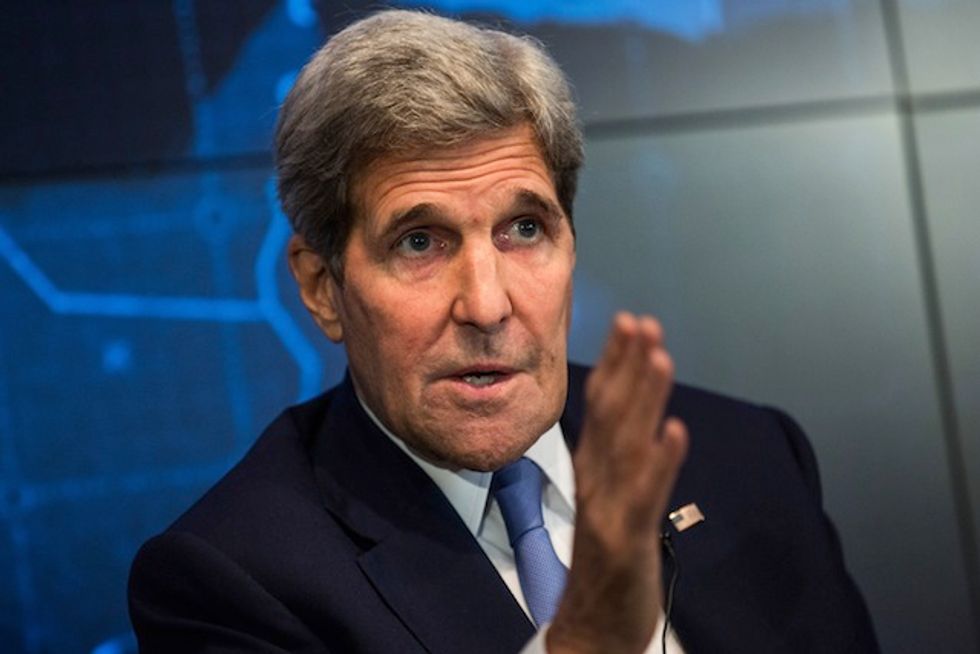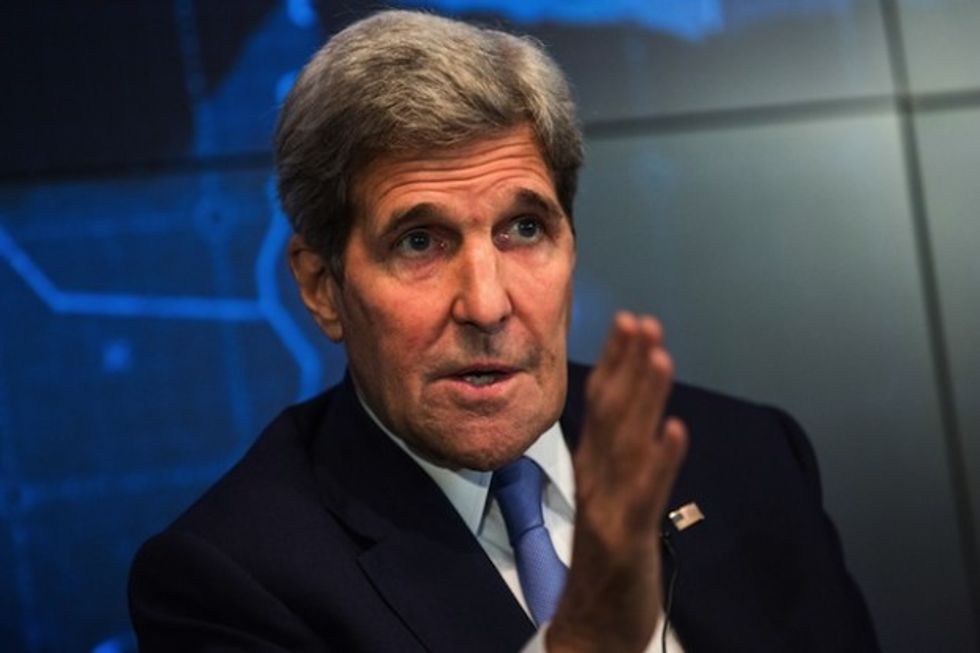
Secretary of State John Kerry speaks about the Iran Deal on August 11, 2015 in New York City. The U.S. Congress has until September 17 to approve a bill either supporting or rejecting the deal. (Photo by Andrew Burton/Getty Images)

Secretary of State John Kerry warned that the dollar could lose its place as the world's reserve currency should Congress reject the Iran agreement.
“That is a recipe very quickly, my friends, businesspeople here, for the American dollar to cease to be the reserve currency of the world – which is already bubbling out there,” Kerry said Tuesday at a Reuters event in New York.

Kerry was referring to the prospect of the United States departing from the five other world powers that negotiated the agreement and insisting its allies continue to comply with U.S. sanctions — something he said would lead to the U.S. dollar losing its position as the world’s reserve currency.
“Can you imagine trying to sanction them after persuading them to put in phased sanctions to bring Iran to the negotiating table, and when they have not only come to the table but they made a deal, we turn around and nix the deal and then tell them you’re going to have to obey our rules on the sanctions anyway?” Kerry said.
Kerry's warning about the dollar was the latest effort by the Obama administration to present a dire scenario in the event that Congress does not approve the agreement.
In a speech last week, President Barack Obama warned that the alternative to the Iran agreement was war.
“The choice we face is ultimately between diplomacy or some form of war. Maybe not tomorrow, maybe not three months from now, but soon,” Obama said.
Kerry also warned that the U.S. could lose its military standing in the world should Congress reject the deal and insist its allies concede to U.S. sanctions on Iran.
“If the United States were to behave that way, not only would we have lost them with respect to the sanctions, but we will lose their support if we have to use military action,” Kerry said. “Can you imagine Israel and the United States taking military action because we forced a situation where Iran goes back to what it was doing because we wouldn’t live by the deal that we already agreed to, which the United Nations has already approved 15 to nothing in the Security Council? It doesn’t make sense."
Yet even it Congress were to reject the deal, it is difficult to imagine that Europeans and others would completely backtrack from their lifting of sanctions, given that companies are already lining up to open business ties and ministers have been flying to Tehran to promote trade since mid-July.
Several economists rejected Kerry’s claim about the standing of the U.S. dollar as the world’s reserve currency, at least in the short term, with one describing the reasoning as “laughable.”
Boris Schlossberg, managing director of FX Strategy, BK Asset Management, told Reuters: “The reality of the situation is that the U.S. dollar hasn’t been this strong in decades. The thought that it could be replaced as a reserve currency is laughable at this point on a geopolitical basis and nothing in the Iran deal even remotely touches upon that issue.”
A currency expert told CNN Money that Kerry’s predication was “an exaggeration.”
"I think he is factually wrong," Marc Chandler, global head of currency strategy at Brown Brothers Harriman, told CNNMoney. "I think this was rhetoric and an exaggeration, but it shows the high stakes politics involved."